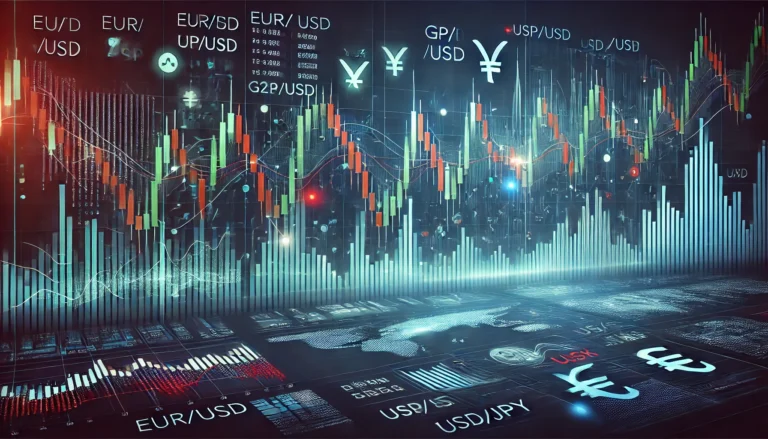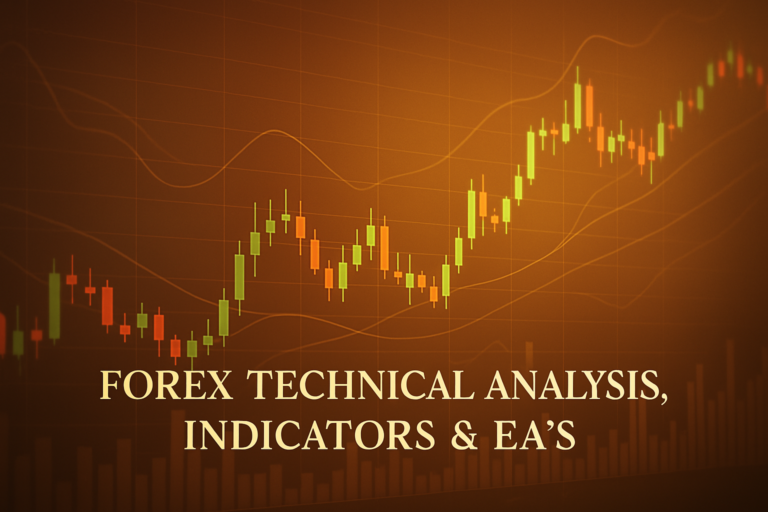
Discover the key differences between trading stocks vs forex and learn how to navigate both markets effectively for successful trading outcomes.
When it comes to trading, many people often ask themselves, “Which is better, trading stocks vs forex?” This question is crucial for anyone looking to dive into the world of Forex trading. Understanding the differences can help you make informed decisions and potentially lead to better trading outcomes.
However, both beginners and professionals struggle with this decision. Each market operates differently, creating unique challenges. Some traders find it hard to grasp the mechanics, while others get overwhelmed by the multitude of options available. Understanding these differences is essential for maximizing your trading potential and achieving financial success.
For instance, the USDJPY forecast April 23, 2025 can help traders anticipate market trends and make informed decisions.
Understanding the Trading Stocks vs Forex
Trading stocks vs forex involves comparing two different financial markets. Stocks represent shares of ownership in a company, while forex (foreign exchange) involves trading currencies. The issue often arises when traders mix the two, leading to confusion and poor trading decisions. For example, a trader might expect the same volatility in stocks as they would in forex, which can lead to unexpected losses.
This confusion occurs for several reasons. First, the forex market is open 24 hours, while stock markets operate during specific hours. This means that forex can be more volatile and unpredictable. Additionally, market-related factors, such as economic news or political events, can impact currencies faster than stocks. For instance, a sudden change in interest rates can cause the value of a currency to fluctuate dramatically, while stocks may not react as quickly.
Pro’s and Con’s for Trading Stocks vs Forex
Understanding the pros and cons of trading stocks vs forex can help you make better decisions. Here’s a quick rundown:
- Accessibility: Forex trading is accessible 24/5, allowing for greater flexibility compared to stock trading, which is limited to market hours.
- Leverage: Forex often offers higher leverage than stocks, meaning you can control larger positions with less capital. However, this also increases risk.
- Market Influences: Stock prices are influenced by company performance, while forex values can be impacted by geopolitical events and economic indicators.
For beginners, it’s essential to understand these differences to avoid common pitfalls. Here are some best practices:
- Start Small: Begin with a small amount to test your skills in either market.
- Stay Informed: Follow market news and economic indicators that affect your trading decisions.
- Use Stop Losses: Protect your investments by setting stop-loss orders to limit potential losses.
When weighing the options of trading stocks or forex, it’s essential to understand their unique characteristics. For more insights, check out this link on forex or stock.
Frequently Asked Questions
1. What is the main difference between stocks and forex?
The primary difference lies in the nature of the assets traded. Stocks represent ownership in a company, while forex involves trading currency pairs. For example, when you buy EUR/USD, you are betting on the Euro’s strength against the US Dollar.
2. Which market is more volatile?
Forex markets tend to be more volatile than stock markets. This is due to factors like economic news, geopolitical events, and market sentiment affecting currency values rapidly. For instance, an unexpected announcement from the Federal Reserve can cause dramatic changes in the forex market.
3. Can you trade stocks and forex at the same time?
Yes, many traders choose to diversify their portfolios by trading both stocks and forex. This strategy can help spread risk and take advantage of different market conditions.
4. What are the trading hours for stocks vs forex?
Stock markets usually operate during specific hours (e.g., 9:30 AM to 4 PM EST for the NYSE), while forex markets are open 24 hours a day during weekdays. This allows forex traders more flexibility to trade at their convenience.
5. Is leverage riskier in forex than stocks?
Yes, leverage in forex can be significantly higher than in stock trading, which can amplify both profits and losses. Therefore, it is crucial to manage risk effectively when trading with leverage.
6. How do I choose between stocks and forex?
Your choice should depend on your trading style, risk tolerance, and time commitment. If you prefer short-term trading and can monitor your positions frequently, forex may be suitable. On the other hand, if you prefer to invest in companies and hold for the long term, stock trading might be a better fit.
7. What tools can help me trade stocks and forex successfully?
Both markets benefit from technical analysis tools, charts, and economic calendars. Additionally, various trading platforms offer resources tailored to stocks or forex, helping traders to make informed decisions.
Conclusion
In summary, understanding the nuances of trading stocks vs forex is key to navigating these markets successfully. By being aware of the differences and applying the right strategies, you can manage potential risks better and enhance your trading outcomes. Stay informed and continuously improve your trading strategies for long-term success.
Staying engaged and curious is what sets successful traders apart. Keep learning, and don’t hesitate to explore new strategies to boost your trading journey!
Recommended Next Steps
Now that you know the differences between trading stocks vs forex, here are some recommended steps to enhance your trading experience:
- Research both markets to understand which aligns with your trading style.
- Consider starting with a demo account to practice trading without risking real money.
- Follow market news regularly to stay updated on economic indicators that affect both markets.
- Join trading forums or groups to share experiences and learn from others.
- Develop a trading plan that incorporates risk management strategies.
Trading stocks vs forex requires careful consideration, but understanding the differences can lead to better trading decisions and success in the long run.
To explore the topic from another angle, refer to this informative source MarketWatch, Statista
Expand Your Knowledge
- 📌 Forex Trading Learning Road Map
- 📌 Forex Trading Course with no Fees
- 📌 Forex Trading Issues, Problems, and Solutions
- 📌 Forex Daily Forecast & Live Updates
- 📌 Forex Fundamental & News Analysis: Tomorrow’s Market Movers & Trade Opportunities
- 📌 Forex Education Hub: Learn & Profit
- 📌 Forex Technical Analysis, Indicators & EA’s
Start Trading Today
Ready to take your forex trading to the next level? Open an account with Exness, one of the most trusted platforms in the industry. 👉 Sign Up Now and trade with confidence!
My recommended broker stands out with ultra-low spreads for beginners, instant withdrawals, and zero spread accounts for pro traders.
Trusted since 2008, lightning-fast execution, no hidden fees, and a secure, transparent trading environment—giving you the edge you need to succeed. 🚀
YouTube Video Library: Related Videos
Note: The video above is embedded from YouTube and is the property of its original creator. We do not own or take responsibility for the content or opinions expressed in the video.




